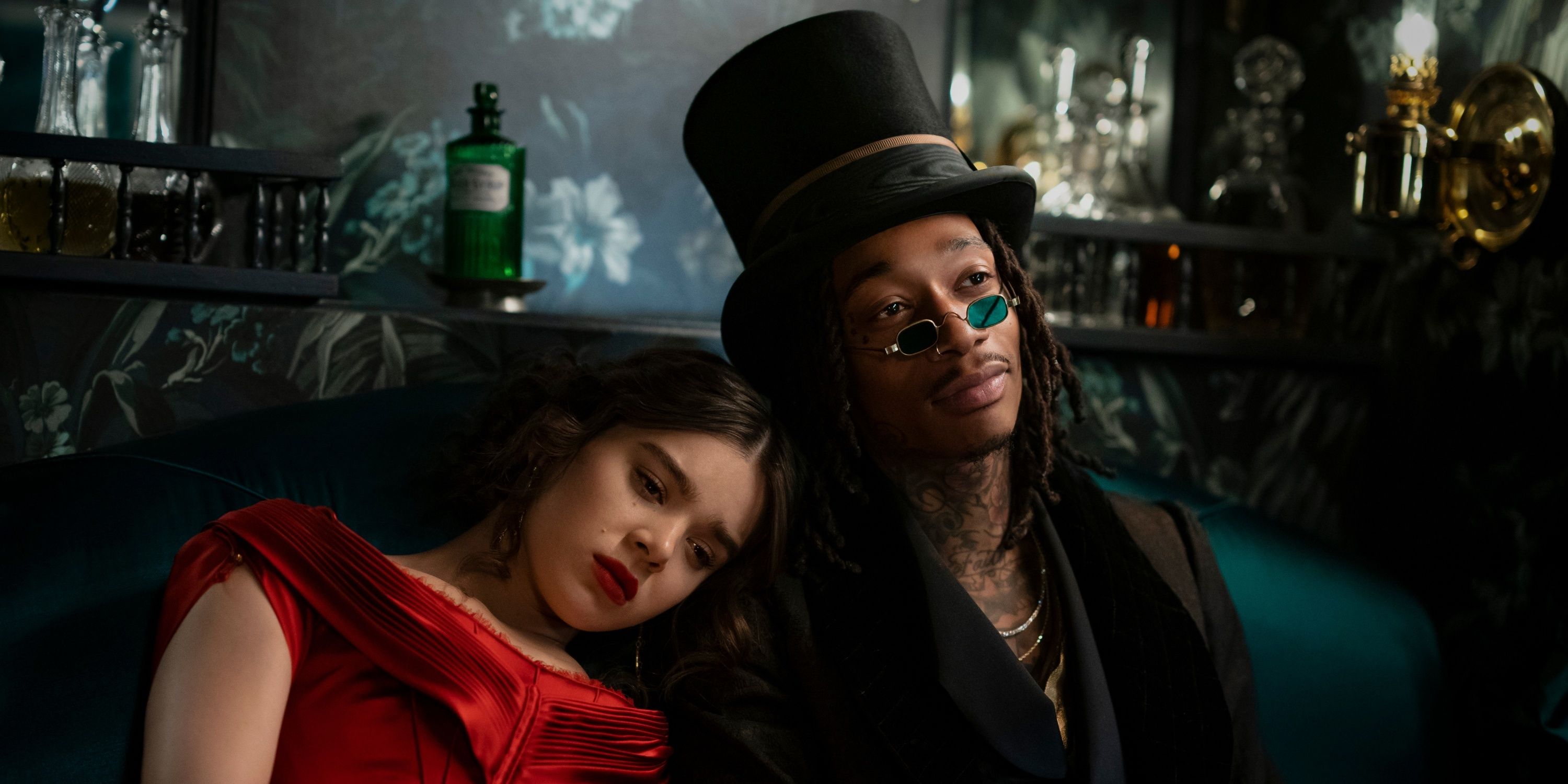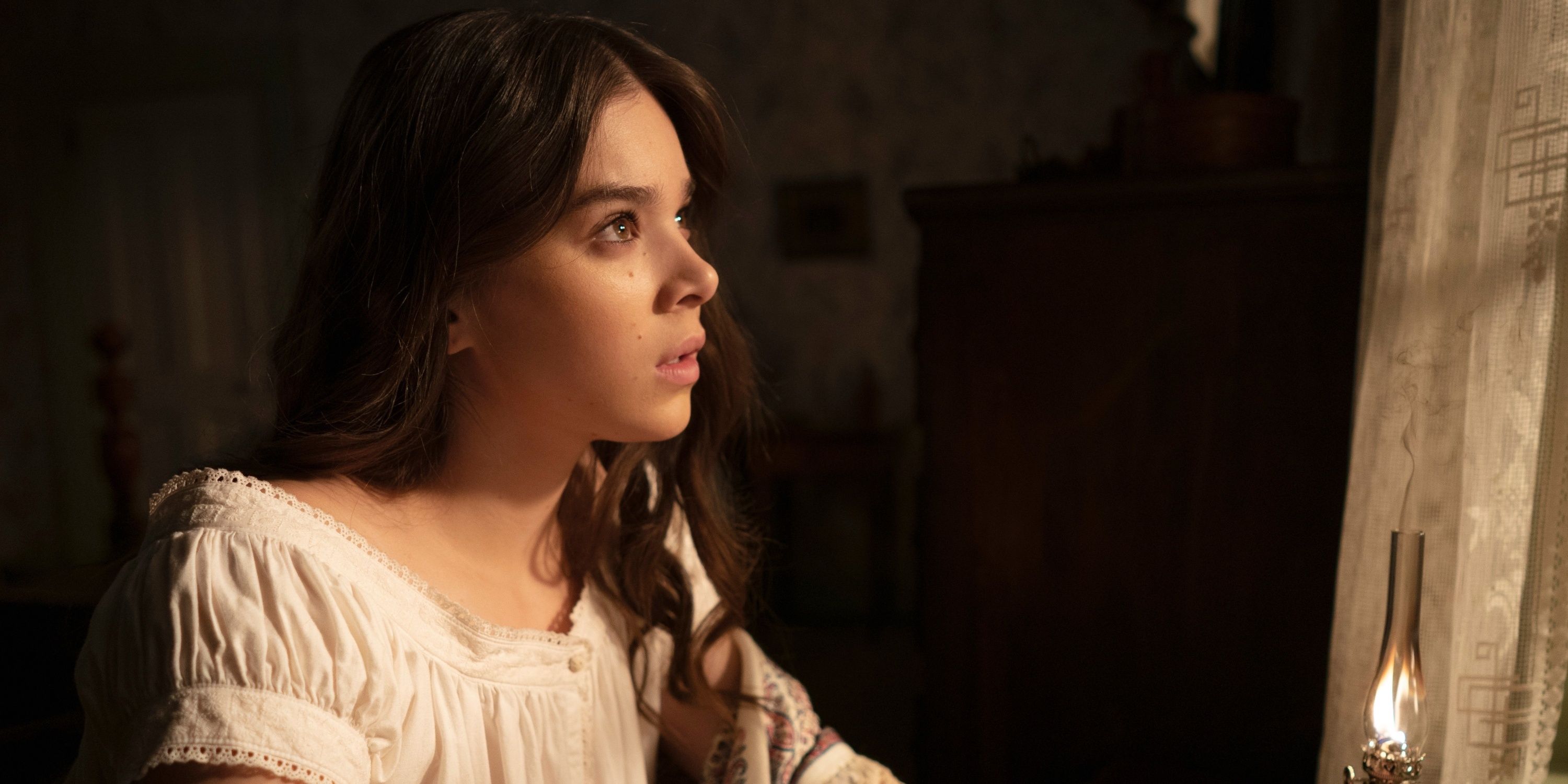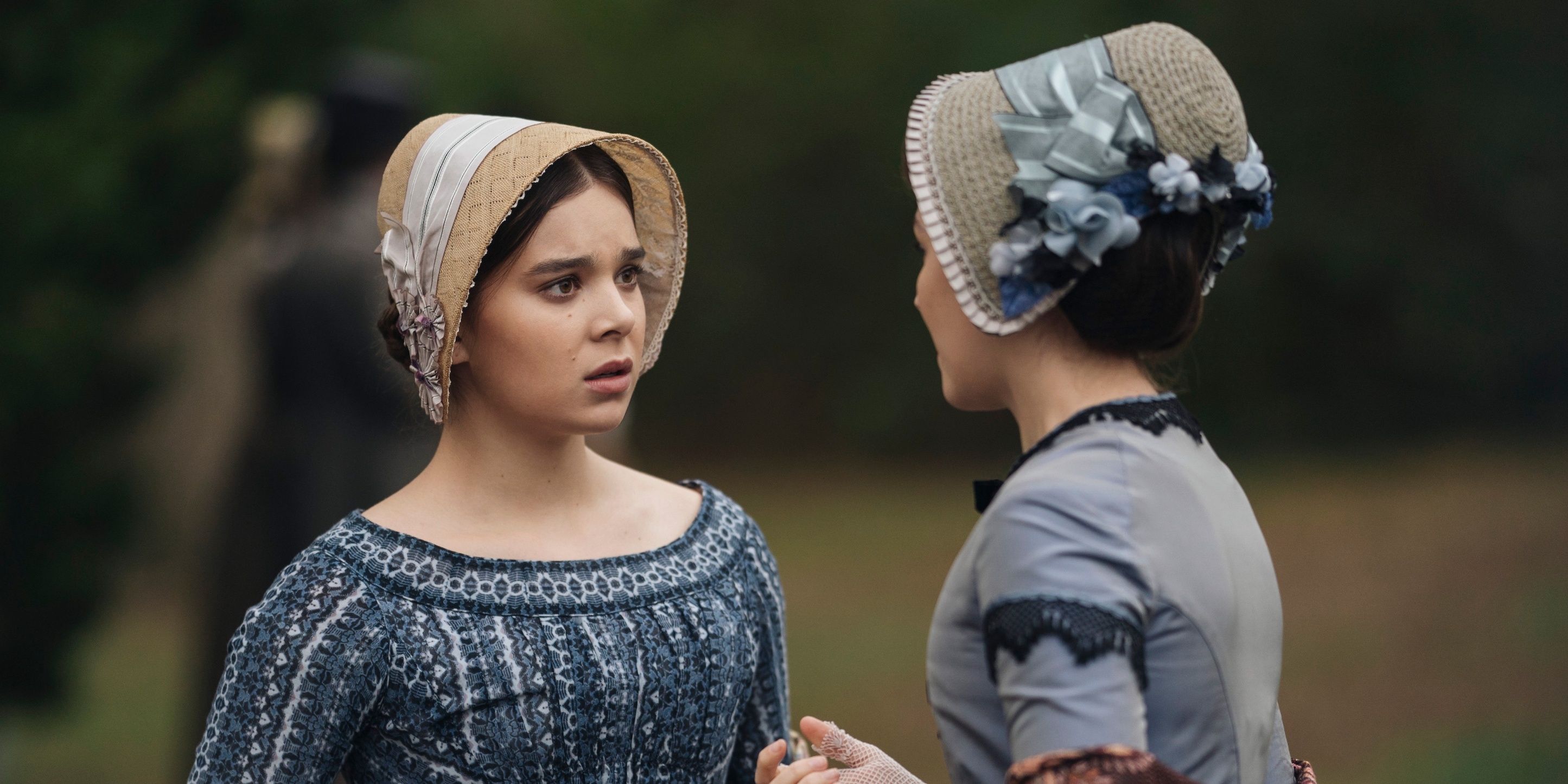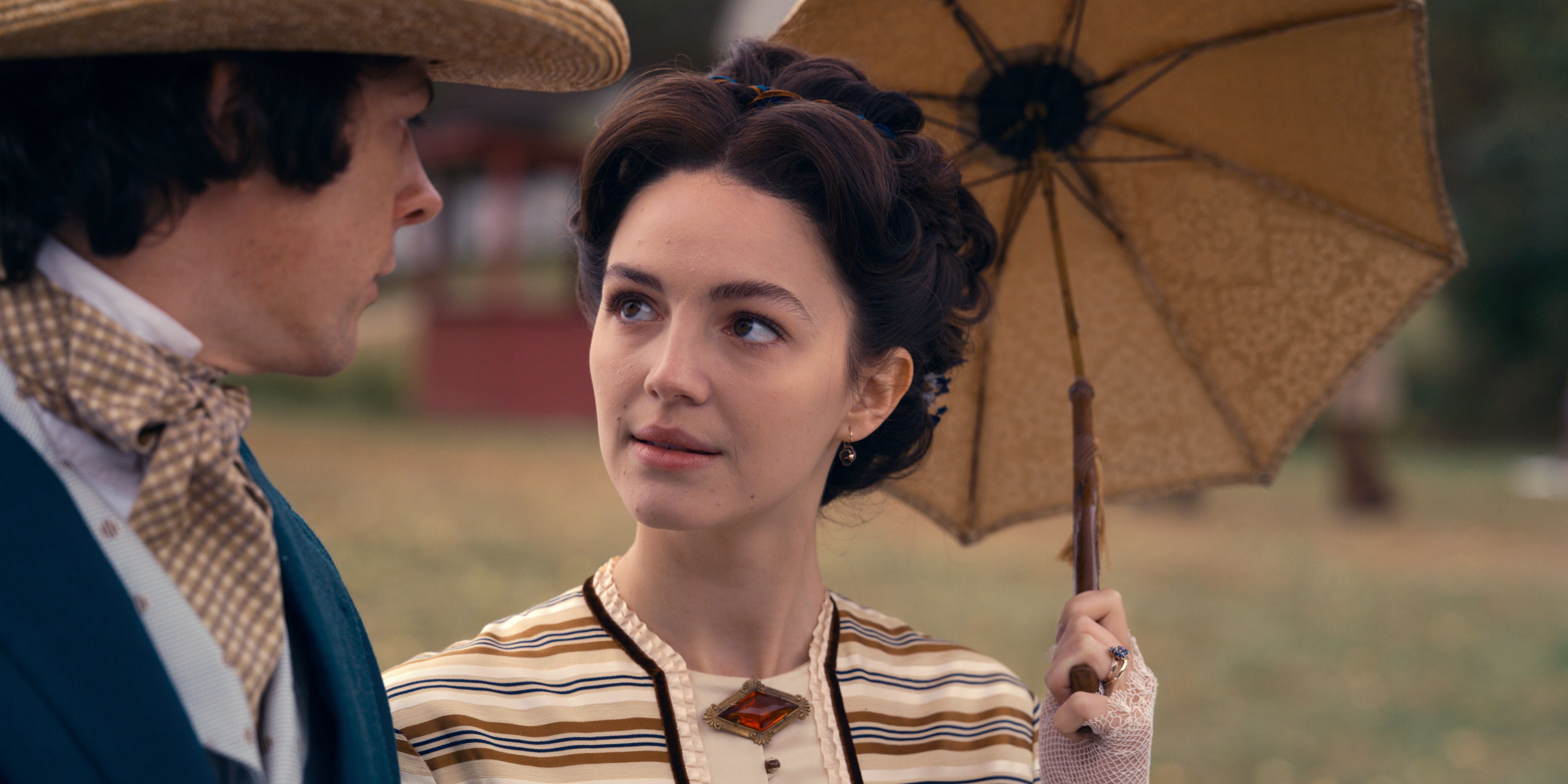From show creator Alena Smith, the Apple TV+ original series Dickinson follows Emily Dickinson (Hailee Steinfeld) on her road to being a published poet and the promise of fame that will follow. When Sam Bowles (Finn Jones), the ambitious editor of The Springfield Republican, does his best to convince her to take her work a step beyond letting just Sue Gilbert (Ella Hunt), her brother’s wife who she also happens to be in love with, read them, it tests Emily in ways that she never could have imagined.
During the virtual press day for the second season, showrunner/executive producer Alena Smith spoke to Collider for this 1-on-1 interview about how she’s continued to work on three seasons of the show without a break, the show’s complicated prep process, her relationship with Hailee Steinfeld who’s also an executive producer on the series, the challenges of the opera episode and the spa day episode, the fun of casting Death and Edgar Allan Poe as characters, and the Emily-Sue relationship dynamic.
COLLIDER: You’ve previously talked about how you wrote all of Season 2 and started production on it before Season 1 launched, and that it was one continuous creative process. Now that you’ve had some time away from filming it and the season is coming out now, how does that feel? Are you surprised at what you have accomplished, especially as a first time showrunner?
ALENA SMITH: Yeah, it feels great. I’m just so ready for Season 2 to come out and for everyone to catch up in the story to where we’re at. As I’ve been waiting for Season 2 to come out, I’ve been working on Season 3. There hasn’t really been a break. I’ve pretty much been working continuously on Dickinson since I sold the show in 2017. It’s been quite an intense journey through a birth canal to get this baby out into the light. I’m so happy that it’s coming and that we’re gonna start off with this new year with such an exciting season. I really think that Season 2 ups the ante, in a way, on a storytelling level, visually, and in terms of the growth and sophistication of the characters. Now that everyone’s in the world, we don’t have to do the introductions. We can just go deeper into the story, and that feels so wonderful.
Were you nervous at all about essentially having two seasons of material done before anyone saw the series, or do you feel like it worked to your advantage that you didn’t have that feedback?
SMITH: TV is different now than it used to be. Schedules are weird. I went into the pitch for this show knowing what Season 2 was. I don’t think it would have made that much of a difference. To me, I was telling the story that I wanted to tell. I wasn’t nervous about it. I was just frustrated that it took so long.
You’ve also previously said that Season 3 is where you’ve been aiming at the whole time. At what point did you have a full vision that far ahead, and how far along are you with Season 3?
SMITH: We’re really far along. We’re going into production this spring. With Dickinson, we write all of the scripts ahead of time. It’s a very complicated prep process. It’s a period show with a lot of creative elements that come into it, so the sooner I get the scripts out the door, the better for everybody because all of the organization that happens, in terms of set, can go on. Costumes get built, Death’s carriage gets brought out. There’s a lot that goes on. It’s how we build the meticulous visual world of the show. It’s an immersive experience that you’re in. It’s not the kind of show where you can go, “Oh, we’re actually gonna do this scene now,” because where are you gonna find an 1850s prop that you didn’t know you needed? It’s a bit more like a filmmaking process than a typical broadcast show. The reason I have always been aiming at Season 3 is because that is where we get into the Civil War and I wanted to really explore Emily’s role in that. That’s what we’re up to. I’m glad that in the interim, we get to have Season 2, which really feels like a party season. There’s a lot of glitz and glamour. We go to a lot of really lovely, luxurious places, like the opera and the space, and a lot of that wouldn’t have been possible now that we’re gonna be shooting in COVID. I just feel so lucky that, even though it did take so long for it to come out, I feel so lucky that we finished it all before that started. I’m just so excited for people to see what we made.
What is your relationship with Hailee Steinfeld like? How closely do you guys collaborate together and what sort of feedback does she give you, especially with her being a producer on the series?
SMITH: I feel like it’s about as close as it gets. As a feminist showrunner working with a younger female actor, I always want to empower Hailee to be owning the story. She’s also an EP on the show, so she takes real ownership and pride in Dickinson as a project. It’s a very interesting dynamic between a writer and an actor who are both trying to tell a story of a character who’s based on a historical figure. There are a lot of ways into that conversation and into that creation. There’s an alchemy there. At the end of the day, it’s really hard to pick apart what came from who and what came from where. That’s what ultimately makes a successful performance. As a writer, I write for performance. I write for actors. Nothing could be a greater honor for me than getting to write for an actor like Hailee because there’s not a lot of people like her. I genuinely think that she is on the level of male actors that we think of as being the best actors. I don’t even want to compare her to other young women. I think she can do it all. We’re really lucky to have her.
This series is difficult to categorize. It’s comedy and drama, it’s fact and fiction, and you pay attention to detail while paying less attention to the historical language and music. When it comes to what you’ve been able to do with this series for two seasons now, what are you most surprised that you’ve been able to pull off?
SMITH: We know that women’s hairstyles in the 1850s were really ugly, so I’m happy that we were able to pull off making the girls look good, even with those ugly hairstyles. Our opera episode in Season 2 is really special. It was a place where in the entire talents of the whole collaborative team that makes Dickinson really came together in this beautiful way to create something that’s so spectacular. I do feel like that episode could stand on its own. You don’t have to have seen any of the rest of the show, and I think you could watch that episode and it would feel like you just saw a great story. That makes me feel really happy. All of these crazy, seemingly disparate elements can work together so cohesively, and I think the opera episode really embodies that.
I also really loved the spa day episode because it’s so fun to see Emily and the women in her life have that moment together. What are the challenges of doing something like that, where you’re having them go through all these different things throughout the episode?
SMITH: That was definitely a huge challenge for production. Something that’s special about Dickinson, Season 1 and Season 2, is that each episode really brings a new visual palette into the mix, and that one is such a strong example. All of that stuff was new and had to be built and designed and fabricated and found, so it was a huge undertaking. I just really credit my incredible crew and design team and the director of that episode, Stacie Passon, for pulling it off and all of the actors for going along with this insane thing, where they had to sit in mud baths and get water dumped on their heads, but hopefully had some fun too.
When you knew that you would have to be cast someone to play Death, how did you come to Wiz Khalifa? And then, how was it to also cast somebody this season to play Edgar Allan Poe?
SMITH: It was awesome. Wiz Khalifa was absolutely my dream person to play Death. I had even put a picture of him on a vision board for the character and said, I want someone with a Wiz Khalifa vibe. So, it was pretty great that we got actual Wiz Khalifa. He is a larger than life presence in his role as Death. And then, this year, we have Nick Kroll playing the ghost of Edgar Allan Poe because Edgar Allan Poe was already dead in 1859. I knew I wanted to bring Poe into it because no one embodies gothic horror better than Edgar Allen Poe, and we definitely have certain elements of that in the show. Emily’s life was a bit of a gothic tale with a madwoman in the attic vibe. So, when I realized that he was dead, I was like, “Oh, that’s perfect. We’ll just have his ghost come.” It’s very exciting. Since we had John Mulaney playing Thoreau in Season 1, it’s so fantastic to have Nick Kroll play Edgar Allan Poe in Season 2.
What made you want to focus so heavily on Emily and Sue throughout this season, and the importance of that relationship in her life?
SMITH: Thanks to the work of diversity scholars, we know now that Emily’s central partner in life was her friend and then sister-in-law Sue, to whom she wrote hundreds of beautiful love letters and poems. They live next door to each other in these two houses that you can still go visit. If you go visit the Dickinson homestead in Amherst, you can visit The Evergreens, which was Austin and Sue’s house next door. So, their love story is very complicated. On the one hand, you can see it as this beautiful, committed partnership that lasted over decades, and another way you can see it is absolutely doomed. As our director Silas Howard has said, “If you want unrequited love, you can’t do better than falling in love with your brother’s wife.” By all accounts, Sue was a pretty complicated and, in some ways, difficult person, and obviously Emily Dickinson was not exactly a simple creature herself. These two complicated women, struggling and eternally bound up in each other’s psyches, are really compelling and intriguing to me, and a story where there’s always a new side of it to explore.
You’ve evolved from staff writer to co-producer to a show creator, and you’re now running this show. What was your first day on set like, as a showrunner? Did it feel different than other projects that you’d been a part of?
SMITH: The only thing that had prepared me for it is that I started out as a playwright and I was producing my own plays, so I definitely knew what it was to be manning ship and trying to have all of these different elements come together to make something. It was that scaled up by a factor of a hundred. But my first day on set of Dickinson Season 1, I also had twins about five months before that and I was still breastfeeding. And then, I stepped onto set, where I proceeded to spend 16 hours a day for all of the months that it took to make it. It’s been a lot. You need to be really strong, you need to have real endurance, you also need to surround yourself with such a capable and supportive team, which I’ve been so lucky to have on Dickinson, and a really clear vision. I always knew what I wanted the show to feel like, and I was just fighting for that.
Dickinson is available to stream at Apple TV+, with new episodes available on Fridays.




